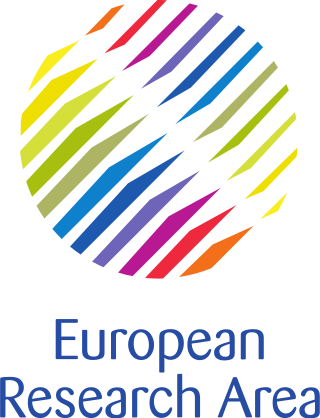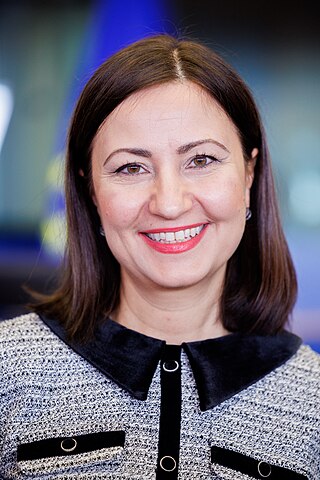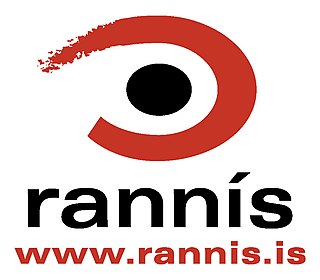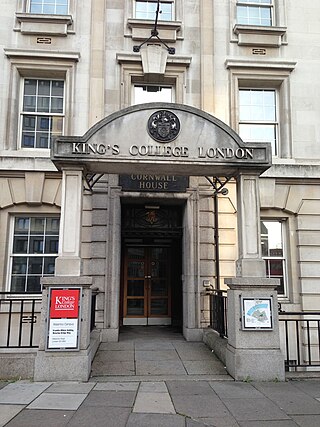
The Institute of Technology, Carlow was an institute of technology, located in Carlow, Ireland. The institute had campuses in Carlow, Wexford, and Wicklow, as well as a part-time provision elsewhere in Ireland. Along with the Waterford Institute of Technology, the institute was dissolved on 1 May 2022 and was succeeded by the South East Technological University.

A grant is a fund given by a person or organization, often a public body, charitable foundation, a specialised grant-making institution, or in some cases a business with a corporate social responsibility mission, to an individual or another entity, usually, a non-profit organisation, sometimes a business or a local government body, for a specific purpose linked to public benefit. Unlike loans, grants are not intended to be paid back. Examples include student grants, research grants, the Sovereign Grant paid by the UK Treasury to the monarch, and some European Regional Development Fund payments in the European Union.

The Joint Research Centre (JRC) is the European Commission's science and knowledge service which employs scientists to carry out research in order to provide independent scientific advice and support to European Union (EU) policy.

The Directorate-General for Research and Innovation is a Directorate-General of the European Commission, located in Brussels, and responsible for the European Union's research and innovation policy and coordination of research and innovation activities. Until her resign in May 2023, DG RTD was headed by Commissioner Mariya Gabriel and Director-General Marc Lemaître.

The European Research Area (ERA) is a system of scientific research programs integrating the scientific resources of the European Union (EU). Since its inception in 2000, the structure has been concentrated on European cooperation in the fields of medical, environmental, industrial, and socioeconomic research. The ERA can be likened to a research and innovation equivalent of the European "common market" for goods and services. Its purpose is to increase the competitiveness of European research institutions by bringing them together and encouraging a more inclusive way of work, similar to what already exists among institutions in North America and Japan. Increased mobility of knowledge workers and deepened multilateral cooperation among research institutions among the member states of the European Union are central goals of the ERA.
The European Institute of Innovation and Technology (EIT) is an independent body of the European Union with juridical personality, established in 2008 intended to strengthen Europe's ability to innovate. The EIT’s three “core pillars” of activities are: entrepreneurial education programmes and courses across Europe that transform students into entrepreneurs; business creation and acceleration services that scale ideas and budding businesses; and innovation-driven research projects that turn ideas into products by connecting partners, investors, and expertise.

The Spanish National Research Council is the largest public institution dedicated to research in Spain and the third largest in Europe. Its main objective is to develop and promote research that will help bring about scientific and technological progress, and it is prepared to collaborate with Spanish and foreign entities in order to achieve this aim.

Mykolas Romeris University is an international university located with campuses in Vilnius and Kaunas, Lithuania.

The European Commissioner for Innovation, Research, Culture, Education and Youth is a member of the European Commission. The portfolio was previously titled European Commissioner for Education, Culture, Youth and Sport until 2019 when it was merged with the European Commissioner for Research, Science and Innovation to form its current title.

The Commissioner for Justice is a post in the European Commission. The portfolios of Justice and Equality were previously combined as Commissioner for Justice, Consumers and Gender Equality under commissioner is Věra Jourová; however, the two portfolios were split in 2019. Didier Reynders currently serves as Justice Commissioner and Helena Dalli serves as Equality Commissioner.

Tibor Navracsics is a Hungarian lawyer and politician, who served as Minister of Foreign Affairs and Trade from June to September 2014. He previously served as Minister of Administration and Justice between 2010 and 2014. He is a member of the Fidesz and was the European Commissioner for Education, Culture, Youth and Sport in the Juncker Commission. Since 2022, he has been the Minister of Regional Development of Hungary.

The Ministry of Education (MoE) is a ministry of the Government of India, responsible for the implementation of the National Policy on Education. The ministry is further divided into two departments: the Department of School Education and Literacy, which deals with primary, secondary and higher secondary education, adult education and literacy, and the Department of Higher Education, which deals with university level education, technical education, scholarships, etc.

The Commission on Science and Technology for Sustainable Development in the South (COMSATS) is an inter-governmental organization, having a membership of 27 developing countries from three continents, Latin America, Africa and Asia. Twenty-four S&T/R&D institutions of developing countries are affiliated with COMSATS as members of its Network of International S&T Centers of Excellence for Sustainable Development in the South. The organization aims at sustainable socio-economic uplift of the developing countries through scientific and technological means while adopting North–South and South–South cooperation.

The Juncker Commission was the European Commission in office from 1 November 2014 to 30 November 2019. Its president was Jean-Claude Juncker, who presided over 27 other commissioners. In July 2014, Juncker was officially elected to succeed José Manuel Barroso, who completed his second five-year term in that year.

The Icelandic Centre for Research funds and promotes scientific research in Iceland. It formed in 2003 through an act of legislation. As of April 1 2022, the Ministry of Higher Education, Science and Innovation oversees its activities. It operates from headquarters in Borgartún 30 in Reykjavík.

Maria da Graça Carvalho is a Portuguese academic, engineer, and politician. She´s currently a member of the European Parliament in the 2019-2024 term, having held office in the 2009-2014 legislature.

The School of Education, Communication & Society (ECS) is an academic school within the Faculty of Social Sciences and Public Policy at King's College London. It offers undergraduate, postgraduate, PGCE teacher training and PhD research opportunities in the fields of Education, Linguistics and Social Sciences. The school is known for its teaching and research expertise in science and mathematics education; language, culture and communication; and public policy.
























